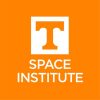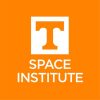
UT Space Institute receives funding from Space Force’s Phase I STTR program

Another member of the University of Tennessee System (UT) will soon receive funding through a recently awarded Small Business Technology Transfer (STTR) Phase I grant, this time from the United States Space Force.
This funding was won by the University of Tennessee Space Institute (UTSI) and NearSpace Launch (NSL) during the Space Force’s first-ever round of funding. A release from UTSI said, “this award will allow UTSI and NSL to conduct a feasibility study of Black Box-MCAT, an integration of NSL’s Black Box EyeStar communications systems technology with UTSI’s µSTAMPS Thruster technology.”
So what does that mean?
The future of space satellites consists of smaller models than in the past. Called nanosatellites of CubeSats, they only weigh one to 10 kilograms. They’re a cheaper and more accessible way to explore space than the big guys, with their market demand growing fast. But current models lack propulsion thrusters, meaning they’re not easily controlled and could hit other things.
µSTAMPS, pronounced MicroStamps, is a patent-pending electric micro-propulsion technology. It was developed by UTSI researchers Trevor Moeller, Graduate Programs Director and Associate Professor, and Lino Costa, Research Assistant Professor.
“Black Box, created by NSL, attaches to CubeSats to provide an independent live feed of diagnostics and telemetry for mission success, risk mitigation, and space debris,” UTSI said in a release. “This project seeks to combine UTSI’s novel propulsion system with NSL’s Black Box technology on CubeSats to allow for precise control, positioning, and correction of orbit, and potentially extend mission lifetime.”
If awarded a Phase II grant, the team would pursue a demonstration flight in orbit.
“To me, the impact of successful demonstration of these systems is opening up the door to a revolution in the way we approach space applications,” Moeller said in a release. “It’s really exciting to have a successful proposal on the first round of Space Force funding. It allows us to show the sponsor that the concept will work and deserves further development that would occur in Phase II.”
“The impact of this work has great potential because CubeSats are having a huge impact on the way we access and use space. When you fuse technologies like what NSL has and UTSI is developing, you can address new issues, whether that is IoT, national security, or space debris. The potential applications and impact from merging these two technologies can be very significant,” Costa said in that same release. “Trevor and I are thrilled to be part of this proposal with NSL.”
Like what you've read?
Forward to a friend!

